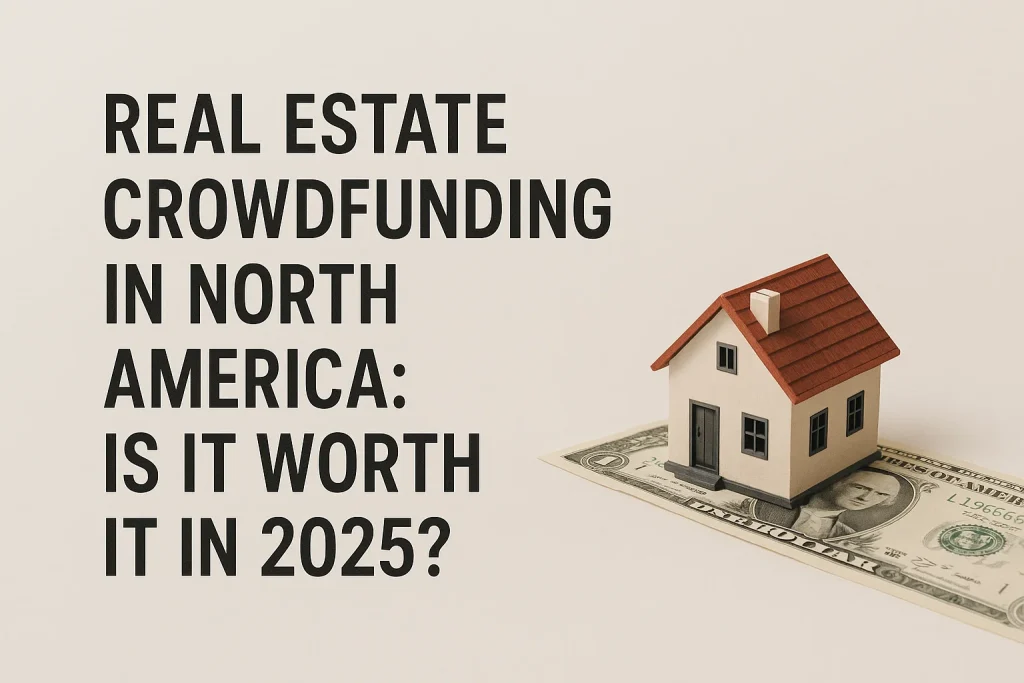Real estate crowdfunding has emerged over the past decade as a promising way for individuals to diversify their investments without needing to buy and manage physical properties themselves. By pooling resources through online platforms, Investors gain access to commercial and residential real estate projects that were once reserved only for institutional players or high-net-worth individuals.
In 2025, This segment of alternative investments is evolving rapidly. North America, Especially the United States and Canada, Has seen an expansion in crowdfunding platforms, regulatory clarity, and interest from millennials and Gen Z who prefer digital-first financial strategies. However, The critical question remains: does this method of investing truly offer a balanced combination of risk and return, or is it still too speculative for cautious investors?
The appeal of real estate crowdfunding

One of the most compelling aspects of real estate crowdfunding is accessibility. Traditional real estate ownership requires significant upfront capital, mortgage commitments, and management responsibilities. Crowdfunding, On the other hand, Allows individuals to contribute smaller amounts while still participating in property development or rental ventures.
Moreover, Many platforms emphasize transparency by providing project details, risk assessments, expected returns, and timelines. Investors can browse a variety of opportunities, from residential renovations in major cities to large-scale commercial developments.
Potential risks and limitations
Despite its attractiveness, Real estate crowdfunding comes with risks that cannot be overlooked. Unlike traditional stock market assets, Many crowdfunding investments are illiquid. Investors may need to wait years before realizing gains, and selling shares in a project can be difficult or even impossible until the property is sold or refinanced.
Another issue is the reliance on the credibility and management expertise of crowdfunding platforms. While many are reputable, The industry has also seen cases of project failures and disputes over distributions. The financial health of the platform itself can influence investor outcomes. In this regard, Due diligence is critical, and selecting platforms with proven track records—such as Fundrise—can mitigate some of these uncertainties.
Regulatory environment in 2025
The legal framework governing real estate crowdfunding has matured considerably over the last decade. In the United States, Changes to securities regulations, such as those introduced by the JOBS Act, have paved the way for non-accredited investors to participate in certain offerings. By 2025, Oversight by agencies like the SEC has strengthened, ensuring stricter compliance and investor protections.
Canada has also adapted its regulations, with provinces implementing harmonized rules to make it easier for crowdfunding platforms to operate across borders. While this regulatory progress enhances trust, It also introduces more complexity for smaller platforms that must navigate multiple jurisdictions.
Comparing returns with other investment vehicles
Evaluating whether real estate crowdfunding is worth it in 2025 requires comparing its performance with other assets. Historically, Well-managed real estate projects have provided attractive returns, particularly in markets with strong rental demand and rising property values.
However, The comparison is not straightforward. Stock markets, While volatile, Often offer higher liquidity and easier diversification. Bonds, Though lower in yield, Provide more stability and predictability. Crowdfunding occupies a middle ground: higher potential returns than fixed-income products, but greater risk and illiquidity than equities. Investors must decide whether this balance fits their personal risk tolerance and financial goals.
Is it worth it in 2025?
The ultimate decision of whether real estate crowdfunding is worth pursuing in 2025 depends on the investor’s profile. For those seeking diversification and exposure to real estate without the burdens of direct ownership, Crowdfunding platforms provide a unique and viable opportunity.
Yet, The model is not without flaws. Investors must accept long holding periods, potential project delays, and varying levels of platform risk. In uncertain economic environments, Real estate projects can suffer from declining property values or rising interest rates. Therefore, Real estate crowdfunding should not be the core of a portfolio but rather a complementary component within a broader investment strategy.
